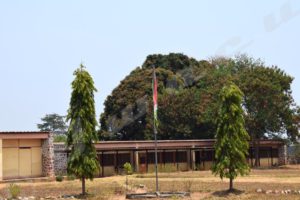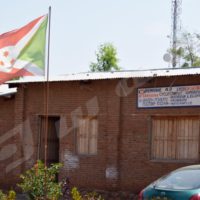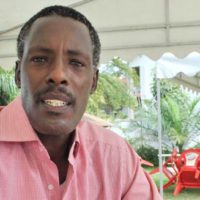The idea of “schools of excellence” is viewed with skepticism by parents who doubt the schools will yield better results. The Ministry of Education claims the outcome will be positive as learners will be in an environment conducive to quality learning.

Ngagara lycée
Parents are questioning whether the new “schools of excellence” set to open this September with the new school year 2016-2017 will be any different to normal schools in Burundi. In the words of one parent: “How excellent will those schools be if they keep the same curricula, same teachers?”
“Better learning conditions will distinguish the schools of excellence from other schools”, reassures Edouard Juma, the spokesman of the Ministry of Education, Higher Education and Scientific Research. “For example, a 30-students classroom is not like a 60-student class. Likewise a school that has laboratory equipment is not like a school with no equipment”, he says.
Schools of excellence will help minimize the impact of problems that plague the Burundian educational system. In fact, despite government actions to improve the educational system through free primary education and increased funding, the sector still faces great challenges. For example, the pupil-to-teacher ratio was 47,1 in primary schools and 29,7 in secondary schools in 2012, according to statistics compiled by Nation master. In addition to the lack of classrooms and qualified teachers, there is the lack of books and other school equipment, and drop-out rates are high. “Overall, we lose 50 percent of the children before they complete primary school,” said UNICEF representative, Johannes Wedenig. “And we lose another 50 percent of those who transition to secondary school before they finish.”
The schools of excellence were created by a decree issued on 18 August 2016. Their stated objective is “the improvement of teaching-learning processes to reduce the shortage of highly trained and competent business managers, teachers, researchers and engineers”. Furthermore, those schools aim at developing student’s interest in research and training them to become creative and critical thinkers through investigative and experimental learning processes.
According to Janvière Ndirahisha, the Minister of Education, Higher Education and Scientific Research, the schools will cover grade 7 of the basic education (known as Ecole Fondamentale) and the first year of post-basic education.
Candidates for the 7th grade will be selected through a contest that will be held tomorrow, 14 September. The eligible contestants will be the best school children from the 6th grade. As for those who will be enrolled in the post-basic education, the sole criterion will be the results they got in the national test they have done.
The Minister says four boarding schools, one in each of the four school districts of the country, will host selected candidates. Those are Saint Marc and Ngagara lycées in the capital Bujumbura, Rusengo lycée in the eastern province of Ruyigi, Musenyi lycée in Ngozi northern province, Notre Dame de la Sagesse lycée in Gitega central province and Kiremba sud lycée in Bururi southern province. The schools have been chosen for the quality of their facilities and equipment that make them excellent learning environment.
















 IWACU Open Data
IWACU Open Data

